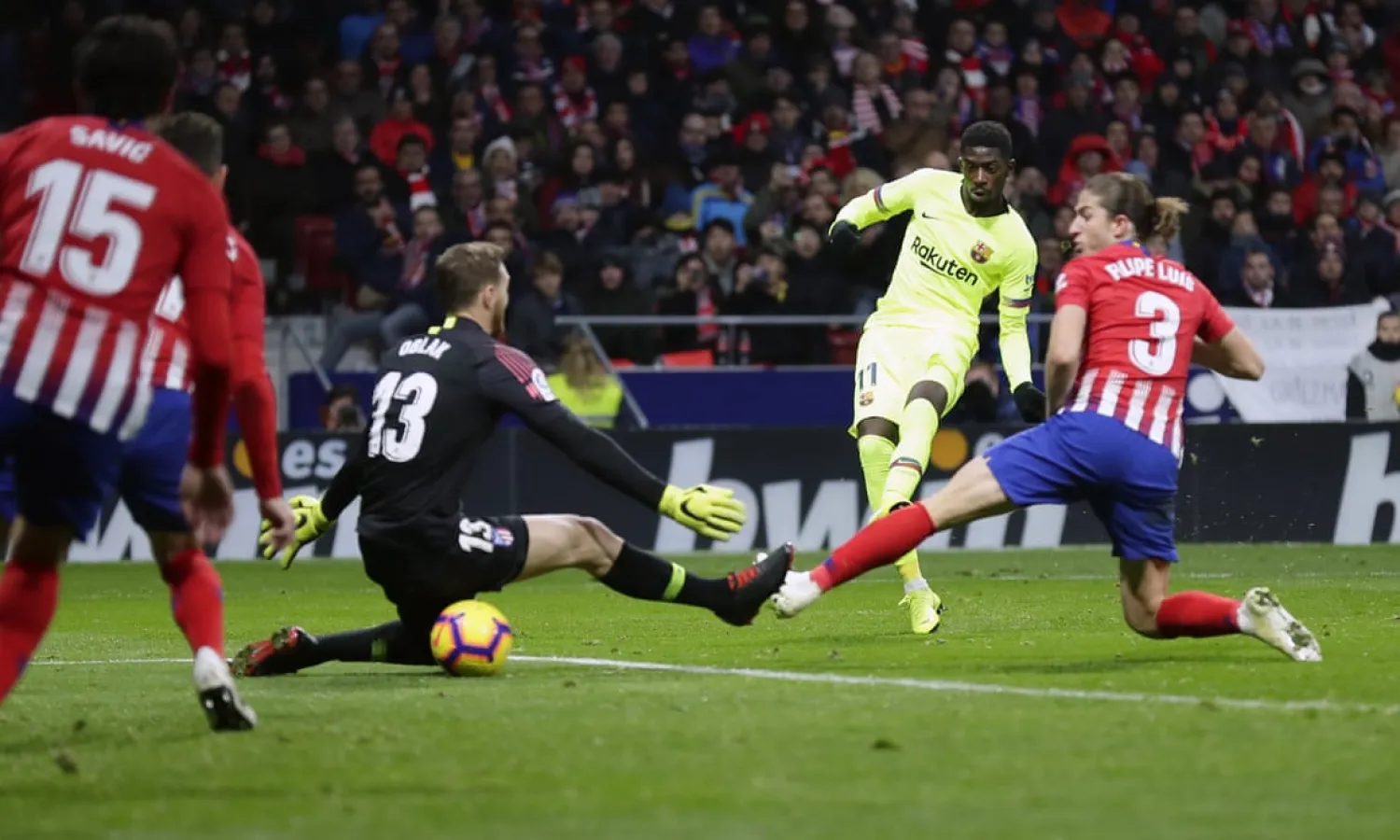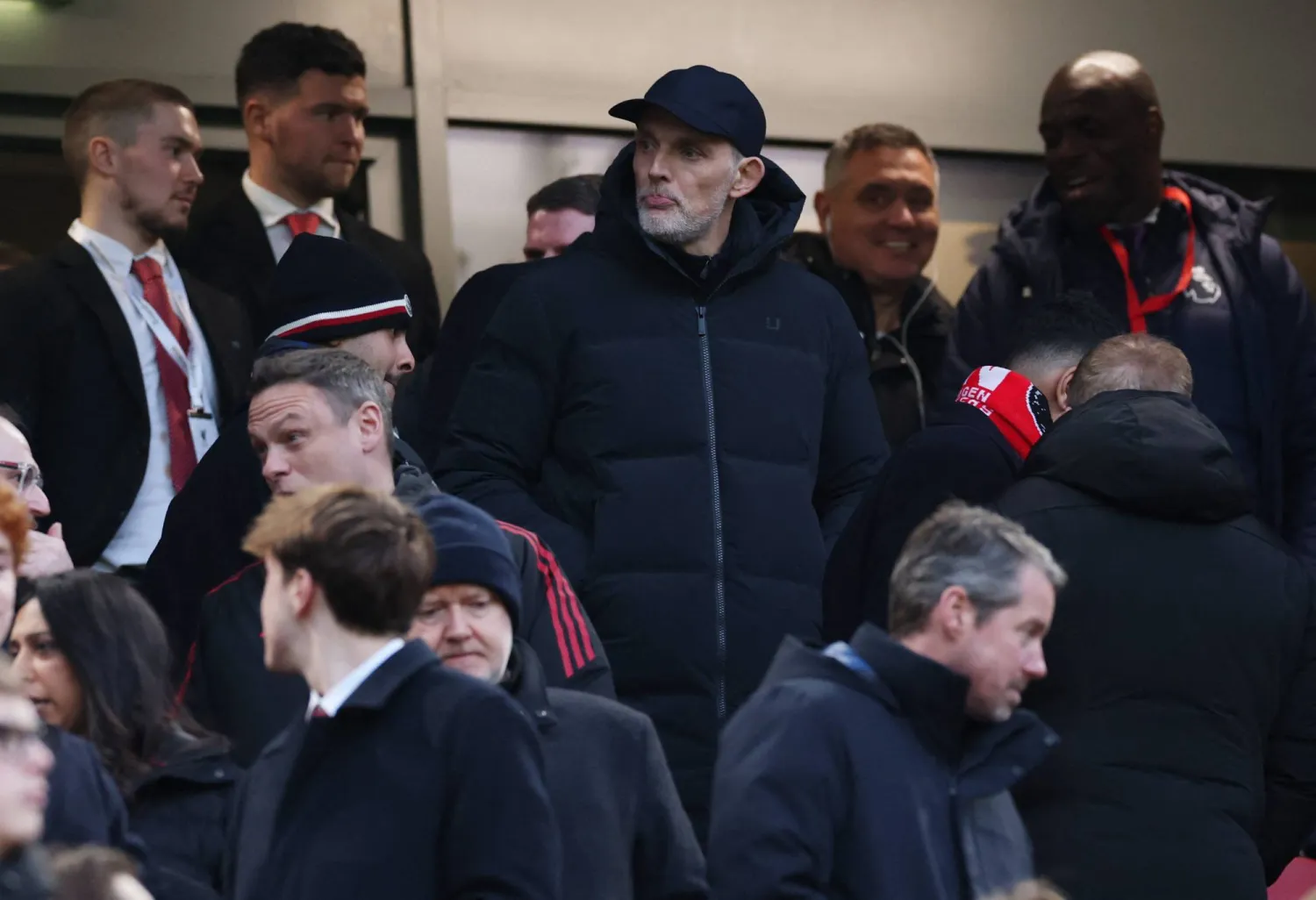By night, he plays video games and eats junk food; by day, he rides to the rescue, saving the same men who have been trying to save him from himself.
Ousmane Dembélé’s national team manager says arriving late is “a little habit of his”, and it’s one that the manager of his club is trying to get him out of, his teammates too, but on Saturday he arrived just in time.
It was the 90th minute, Diego Costa had scored the only goal and Diego Simeone was conducting the crowd. Atlético Madrid were 1-0 up, heading top and Barcelona were heading to a second consecutive defeat, slipping into third. But then Jordi Alba found Leo Messi and he nudged it to the footballer who was left out last time, grounded for a game; whose agent had been called to Barcelona like a naughty boy’s dad called to school; and whose trial had gone very public over the last fortnight, many judging his Camp Nou career over before it had really begun. Dembélé controlled, cut back and scored, through Jan Oblak’s legs, to make it 1-1. Of all the people. He’d only gone and done it.
Again.
Three weeks ago, Dembélé failed to turn up to training. The club couldn’t get hold of him. Dembélé didn’t even bother to go the full Ferris Bueller. Instead, he went for the oldest, laziest trick of all, saying he had a stomach ache – as Xavi Hernández once admitted “gastroenteritis” is the go-to excuse when there is no excuse – and that the battery on his phone had gone flat. By the time the doctor made it to his house, there was no sign of any illness and it later emerged he had been up late playing video games and had overslept. Ernesto Valverde responded by leaving him out for the visit of Betis – which Barcelona lost.
Now, in the very next game he came off the bench to save his side. Oblak held his head in his hands and a grin crept across Dembélé’s face. Luis Suárez ran at him screaming, grabbing him. Soon, the rest of his teammates were there, leaping on board, delighted. The cartoon in El Mundo Deportivo depicted two Barcelona fans agreeing: “we don’t mind him being late if his goals arrive on time.” “Dembélé, on time,” cheered their front page. Sport led on “Dembélé wakes up Barcelona,” while El Mundo was talking redemption, the classic football story.
Only this wasn’t really redemption and nor had everything suddenly changed.
Problems don’t often go away with a single goal, although it helps, and anyway nor was this a single goal. For all the issues, Dembélé has now scored seven times this season, five of them decisive, result-changing goals. Rescuing his team, winning matches, is what he does; and the more they need him, the more decisive he is. He scored the winner in the European Super Cup against Sevilla. Against Real Valladolid, he scored the only goal on an appalling pitch; against Real Sociedad, he scored the winner; and against Rayo, he got the equalizer to make it 2-2 in the 87th minute, before Suárez added a third to complete the comeback.
It is a lot – no player has directly contributed more points to his team – but it is not enough. The debate is served, and it has become entrenched.
If Dembélé has decided games, he has rarely defined them, still less dominated. He has scored more decisive goals, but also given the ball away more than anyone. There’s the sense of a player disengaged, until suddenly he is winning the game.
“Everyone loses the ball; the question is what you do after that,” Valverde said. “No one doubts his talent,” said Guillermo Amor, the former Barcelona midfielder who is now the club’s director of institutional affairs, but many doubt its application.
After Saturday night’s game, Sergio Busquets suggested that the intentional break means that there are “always debates” and Amor suggested that much of the talk has been “exaggerated”.
The passive voice has been used repeatedly: a lot has been said. There was something almost comic about that, as if the comments were unattributable and, above all, from the outside when in fact the doubts raised about Dembélé have come from the inside. And not just via the usual leaks, but said publicly.
It was Valverde who left Dembélé out and after the Betis game it was Gerard Piqué who said: “I am sure he [did so] so that he improves certain aspects,” and who talked about how “we have all made mistakes when we were young”, and reminded the Frenchman that football is a “24 hour” profession – prompting Carles Puyol to giggle that he was happy that “Geri has finally worked that out.” Piqué added another, largely overlooked but particularly significant line: “sometimes, it’s not just doing it, it’s appearing to do it.” And it was Suárez who said Dembélé had to “focus” and urged him to take inspiration from the “professionalism” of others in the dressing room.
All of which underlines that this was not made up and nor was it just one night of PlayStation. In May, Piqué joked that the team’s WhatsApp group was a handy reminder for Dembélé who “is always late” and last week Didier Deschamps said he should be “careful” about his timekeeping. Most at Barcelona see no malice – the accusations are not so serious – but see a disconnect, a kid in his own world, doing kid things. The club had given the 21-year-old a driver and a chef in a bid to get him places on time and improve his diet, but Dembélé sacked him due to what one report described as “irreconcilable differences”.
They were worried, but he is a kid. There is time, if not as much as is assumed. Some on the board would sell now. Patience has worn thin, but another word repeated often is “help”. “He has to understand that he has to change; the sooner he realizes that, the better for him and his club,” Deschamps said – which is what Barcelona were trying to ensure, even if the methodology is questionable.
Valverde’s comments on him had become shorter, more pointed, the hints heavier: about attitude, effort, work, listening. Leaving him out against Betis was more direct. “We have to help him,” Valverde said.
(The Guardian)









